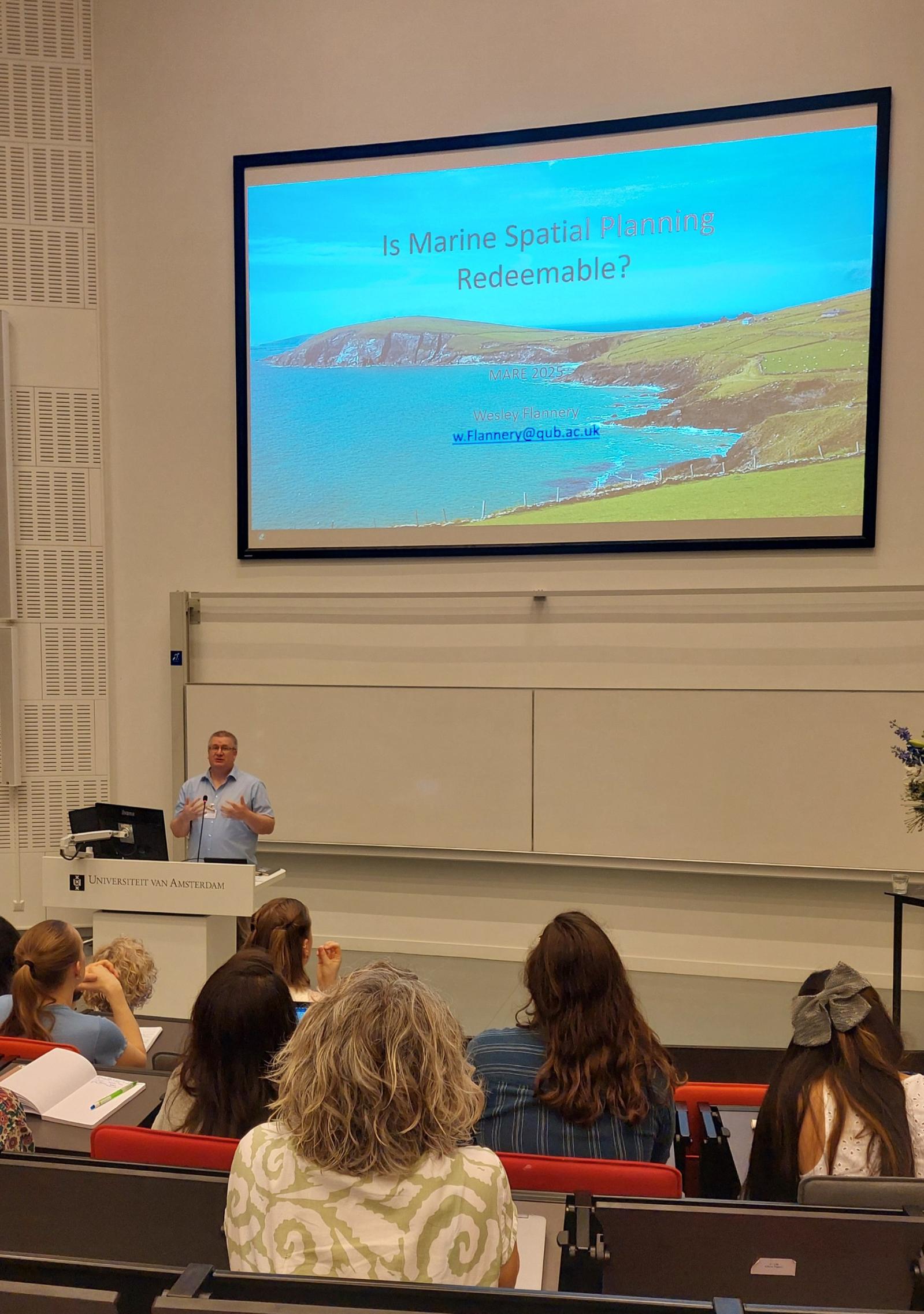ENSGOV participation in MARE conference
In June of 2025, the Marine Research (MARE) Conference was hosted at the University of Amsterdam, and four ENSGOV researchers made extensive contributions!

The conference took place in the middle of the Ocean Decade (2020-2030) and MARE seized the opportunity to reflect on where we currently stand using the ‘People and the Sea’ lens. Four members of ENSGOV participated in the conference, which focused on the theme of ‘Tensions, Trade-offs, and Transformations for the Ocean Decade and Beyond’.
This conference began with its traditional 'Policy Day', this year on the topic of Ports. On Day 2, the main conference content kicked off, with pre-arranged panels with either standard presentation formats or roundtables. In addition to these, a host of social events were organised, such as an opening reception on the evening of Day 1, a meditative art workshop on the final day, and a conference dinner – held in the magnificent Dominicus Church in the centre of Amsterdam – on Day 3.
On the opening day of the conference’s general content, Ben McAteer chaired and presented in a session on transformation through protection. The session included talks on land-sea restoration in an era of 'polycrisis', whales' right to life, and marine ecotourism as a way of resolving ocean conflicts. Ben presented his research, co-authored with Wesley Flannery, on the topic of adaptive marine governance. This piece is informed by his work on the MarinePlan project, which assesses the linkages between Marine Spatial Planning and Marine Protected Areas. Adaptive capacity, which relates to the ability of a system or individual to adjust to changing conditions or recover from the impacts of change, is key to instigating transformation in governance. It reflects learning and an ability to experiment to foster innovative responses and solutions. Ben discussed common adaptive capacity barriers and enablers across MarinePlan's eight regional European marine governance regimes, stressing the need to simultaneously acknowledge barriers and design enabling practices that can help to transform them.
Later on the same day, a roundtable session was held on the topic of ‘Maritime Spatial Planning: Current Practice and Transformative Potentials’. This session involved contributions from both Heather Ritchie and Wesley. An open and interactive roundtable, panellists were asked to discuss how their initial interest in the marine environment evolved, how they began their research career, and what they consider should be the direction of travel for future research. The session also involved considerable engagement with the audience, leading to an interactive discussion around the next steps for marine governance.
The following day of the conference featured a keynote talk by Wesley. Posing the question ‘Is MSP redeemable?’, Wesley presented a fascinating and insightful discussion of whether MSP is worth persisting with and whether we can redeem it in the face of prevailing discourses and intransigent, powerful actors. Wesley concluded by arguing that the tensions inherent in MSP provide opportunities to redefine what it is and who it serves. The talk sparked an interactive debate amongst participants and was warmly received as an important debate to take forward following the conference’s conclusion.
On the penultimate day of the conference, Lindsey West participated in a session on the transformation of marine governance under the European Green Deal. The session was the third and final panel organised by the PERMAGOV project at the conference, which Lindsey contributes to. The project sets out to contribute to the European Green Deal by improving implementation and performance of EU marine policies related to marine biodiversity, marine litter, marine energy, and maritime transport. Lindsey’s presentation, titled ‘Institutional dynamics in governance change and innovation: A case study of floating wind in the Celtic Sea’, involved an assessment of her initial findings and recommendations. It was explained how the Celtic Sea is a complex policy arena, wherein the realisation of floating wind energy potential will necessitate international cooperation and coordinated multi-level governance.
This year’s MARE conference provided an excellent opportunity to showcase some of the marine social science research conducted by ENSGOV members, as well as network with and learn from other social scientists and practitioners. We are already looking forward to the next MARE conference in 2027!
